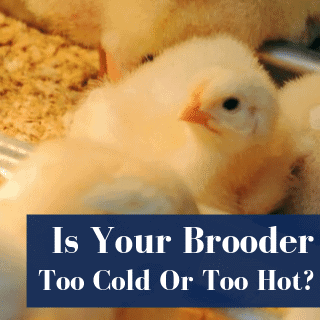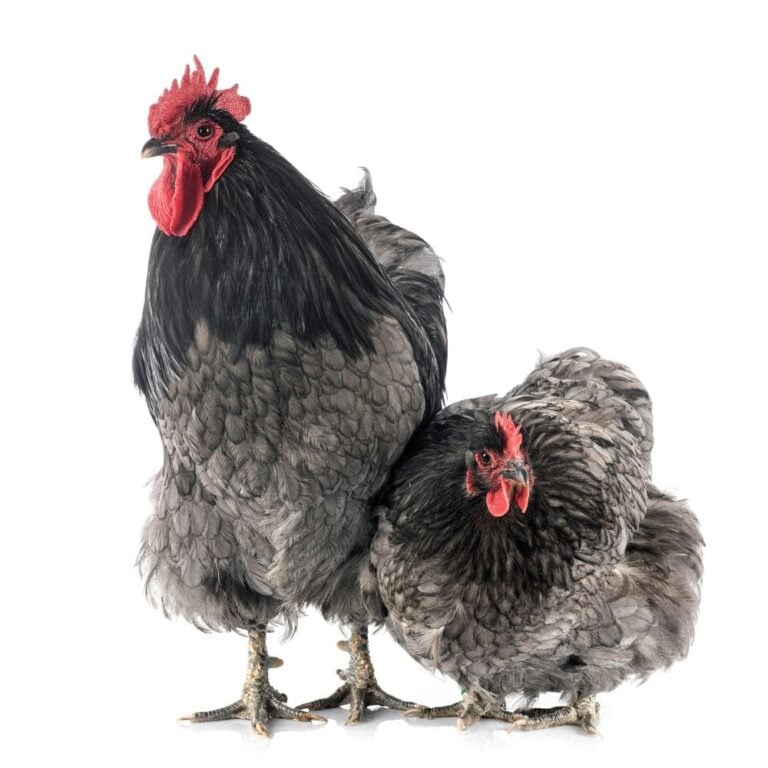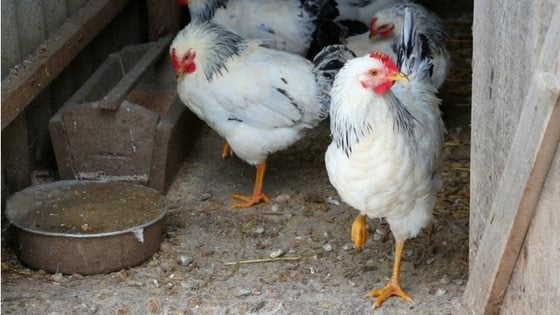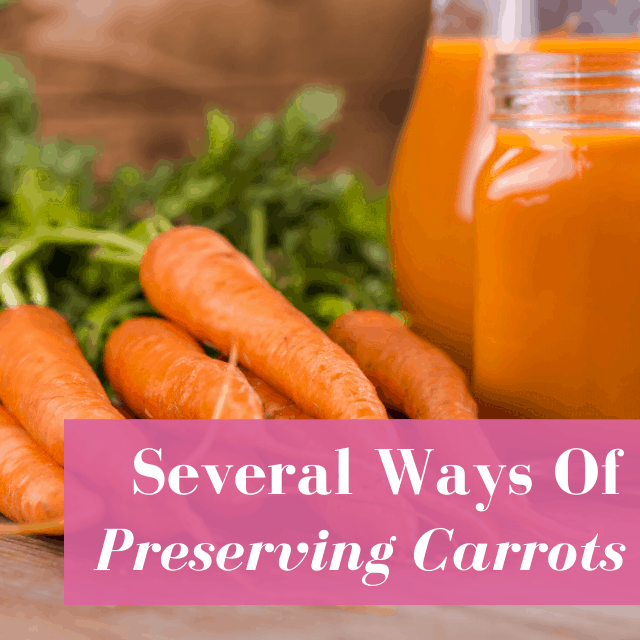We all know fresh eggs are best, but we also need to know just how long they last. Follow me to find out – the last one to finish reading is a rotten egg…
We’ve made the mistake every so often of forgetting that we left eggs on the counter, or one of the kids hid an egg in an undisclosed location. We’ve always found them eventually – and it’s not been a pleasant find.
When eggs rot, not only do they stink – they turn black and gooey. It’s really an experience you’re better off not having.
In this article, I’m going to show you how you can keep your eggs as fresh as possible, how you can tell if eggs are bad, and answer the age-old question “how long do fresh eggs last?”
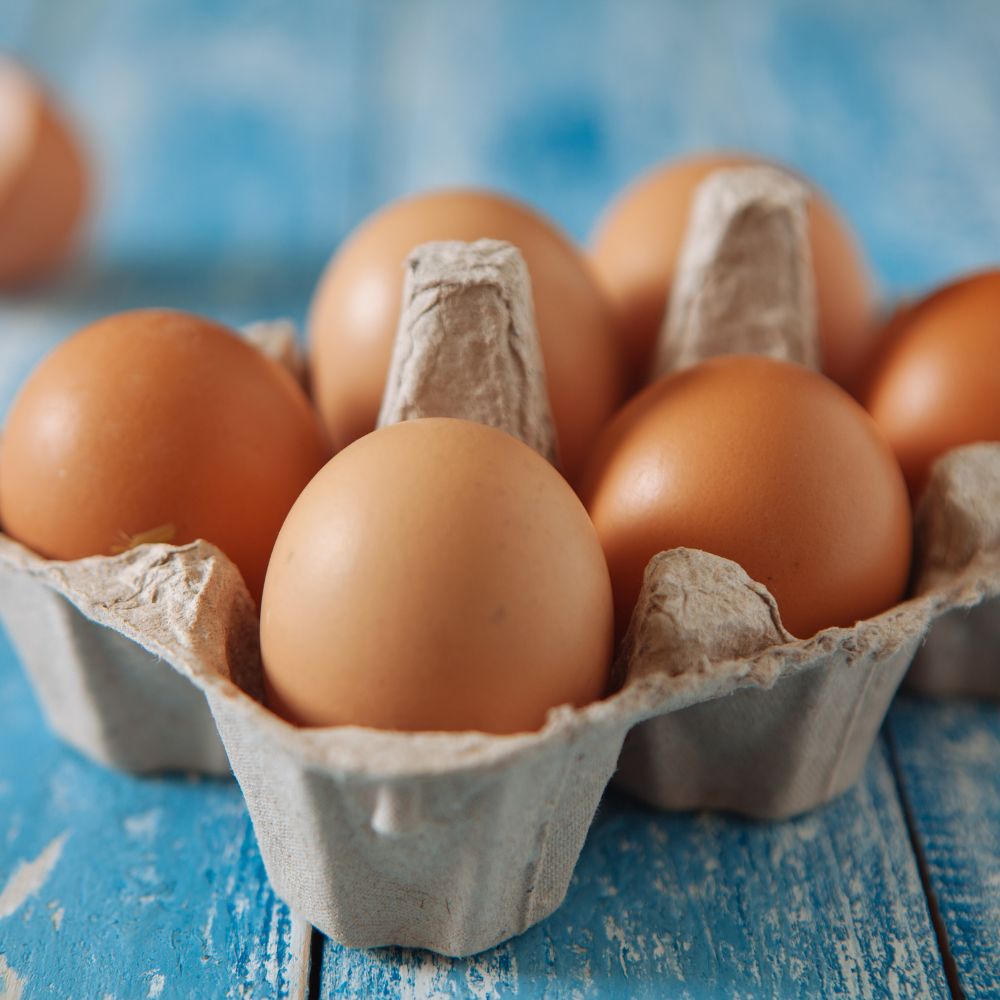
Table of Contents (Quickly Jump To Information)
Why Do Eggs Go Bad?
Eggs go bad even when they’re refrigerated – they definitely have an expiration date. It’s not usually the date printed on the carton (if you happen to have store bought eggs – if you do, consider getting chickens).
First, let’s talk about the bloom. When eggs are laid, they’re covered with something called “the bloom,” a cuticle or natural covering that keeps bacteria out of the egg, keeping it fresher for longer.
It’s an advantage that helps chickens reproduce successfully – an egg that can easily be contaminated won’t hatch or will hatch weak and sickly chicks.
Store-bought eggs (at least in the US) have had the bloom removed – so if you’re wondering “how long do eggs last?” not only do eggs go bad, store eggs will rot faster than farm fresh eggs even when refrigerated. This is because they’re more susceptible to bacteria entering through the shell and contaminating the albumen (egg whites) and the yolk (because the bloom was removed). Not a good thing!
Farm fresh eggs that haven’t had the bloom removed will still spoil, but at a slower rate.
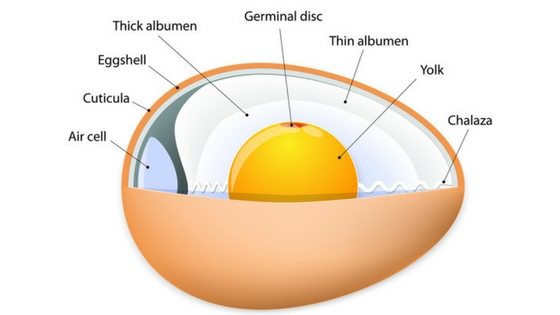
How Do Eggs Go Bad?
As the bacteria enters the egg, it will reproduce and grow, feeding on the nutrients – particularly if you’ve left the eggs on your shelf or counter and not in the refrigerator. Eventually, so much bacteria gets into the egg that the insides turn black – and very stinky. Learn more about the insides of a chicken egg.
How Long Do Eggs Last Unrefrigerated?
How long you can leave eggs out before they become rotten? There are a few different answers to this question.
Farm Fresh eggs with the bloom on can last 2 to 3 weeks unrefrigerated. However, they WON’T be fresh or as healthy for you.
So what is the official shelf life of eggs? According to the United States Food Safety and Inspection Service refrigerated eggs can still be refrigerated 4-5 weeks after their expiration date.
If you want to preserve fresh eggs for long-term storage, here’s an article that shows you how.
How To Tell If Eggs Are Bad
If you wonder how you can tell if eggs are bad, there are a few different ways.
Well, for starters they will have bad odors and eventually turn black inside. It’s a smell and sight you will never forget if you experience it. But the real danger is when they first go bad, because you may not even realize it at first glance.
Here are a couple of easy guidelines:
- Does it pass the smell test (in other words, does it stink)? If you smell anything, just toss it. Fresh, healthy eggs don’t smell at all.
- You might notice when you crack them, that the yolk might break super easy and be really runny (this is because the membrane holding the yolk together weakens over time), that’s a sign of an older egg.
- Another great option is the Egg Float test – you can learn how to do that in this video:
How Long Do Raw Eggs Out Of The Shell Last?
Once you crack an egg and empty the contents, you have 1-2 hours to safely use them. Although, it’s best to keep them refrigerated at that point (since bacteria grows better at room temperature)- and then you have 2 to 4 days to use them.
How Long Do Hard-Boiled Eggs Last?
Hard-boiled eggs will last up to one week in the refrigerator and in the shell. Eating the egg within 1 to 2 days is best if you have peeled it and kept it in the fridge. Putting them in the freezer is not recommended.
What Happens If You Eat A Bad Egg?
When an egg goes bad it has the possibility of salmonella contamination, a bacteria in the intestines that is common to food poisoning. The symptoms of this illness are pretty gruesome and include fever, vomiting, and diarrhea. It can be very dangerous and even life-threatening in some situations.
Of course, not all old eggs end in a horrific story of salmonella poisoning – but it’s nothing to mess around with. So, avoid eating old eggs.
Summary
So, if you’ve been wondering “do eggs go bad?” or “how long do eggs last?” you can feel quite sure that as long as you leave the bloom on and keep them in a cool area, they’ll last for several weeks. You can also rest assured for a longer period of time, if your eggs are refrigerated.
More Chicken Egg Resources
- Tips on Using Up Extra Eggs
- Info on Abnormal Chicken Eggs
- Why Your Chicken Stopped Laying Eggs
- What To Feed Your Chickens for Great Tasting Eggs
- Why is there Water in My Eggs?
The Backyard Chicken Bundle is a unique ebook bundle with every resource you need to start raising a flock of healthy hens! (Total value $250 for just $24.99). START spending every possible minute playing with & enjoying your pets, without the worry!
Included in the bundle:
- 5 individual ebooks with over 40 gorgeous full-color photographs, charts, and recipes for all-natural coop cleaners, layer feeds, herbal first aid salves, and more.
- 34-page Herbal Encyclopedia to growing 30 different herbs for your hens right in your own backyard
- 3 downloadable checklists to save your flock from bad weather & predators, and to keep them healthy while molting.
- 1 Apple Cider Vinegar for Backyard Chickens video that shows you step-by-step how to make organic apple cider vinegar in your own kitchen
- Information you can TRUST by a recognized backyard chicken expert featured in Reader’s Digest, Glamour, and on major news networks like ABC, CBS, & NBC.
Get your Backyard Chicken Bundle here!
Maat van Uitert is a backyard chicken and sustainable living expert. She is also the author of Chickens: Naturally Raising A Sustainable Flock, which was a best seller in it’s Amazon category. Maat has been featured on NBC, CBS, AOL Finance, Community Chickens, the Huffington Post, Chickens magazine, Backyard Poultry, and Countryside Magazine. She lives on her farm in Southeast Missouri with her husband, two children, and about a million chickens and ducks. You can follow Maat on Facebook here and Instagram here.


